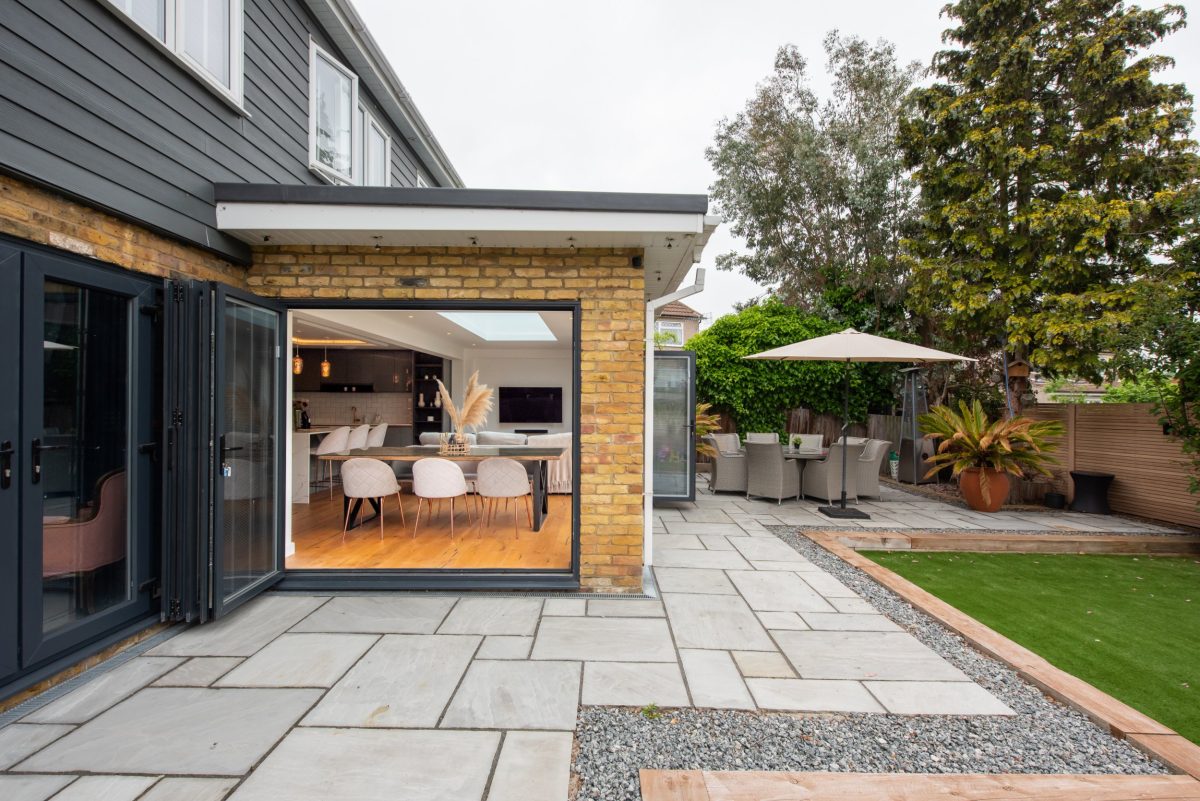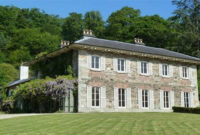Nature in the UK is more depleted than almost anywhere else on the planet, according to global data released in 2021. Wildlife continues to suffer under the combined onslaught of industrial-scale agriculture, ill thought out housing developments, and the expansion of transport and energy infrastructure.
Under such circumstances, the country’s 23 million gardens – adding up to an area the size of Somerset – should provide a desperately needed haven for nature, but increasingly they are doing nothing of the sort. Instead, more and more are vanishing under what’s known as hard landscaping – layers of wooden decking, concrete, tarmac, stone slabs or plastic grass; almost every scrap of wildlife elbowed out.
According to a new study by the Horticultural Trades Association, more than one in five people with gardens have plans to cover them with some form of solid surface material in just the next five years – adding up to an area a quarter the size of London. Around 25 per cent of the country’s combined garden area is already covered over, but this figure will reach more than one third by 2030 if people’s plans come to fruition.
While installing hard surfaces in back gardens, especially decking and stone patios, remains popular, it is front gardens that are bearing the brunt of the trend to banish nature. Paving over front gardens is, in fact, a relatively new phenomenon, facilitated by a change to planning laws in 1995, which allowed homeowners to cross over pavements and park on their own land. Typically, this has been driven by a lack of on-road parking, but also as a means to reduce the amount of time spent on garden maintenance.
Whatever the reason, a 2015 analysis by the Royal Horticultural Society revealed that, during the previous 10 years, there had been a three-fold increase in the number of paved over front of house space, adding up to a combined area of 15 square miles. In 2016, more than five million front gardens supported no plant life, while more than seven million were almost completely paved over. Today, the situation has undoubtedly become even worse.
Making our gardens less amenable to wildlife is bad enough, but there is another reason why replacing soil and grass with concrete and tarmac is very bad – flooding. At a time when rainfall is becoming more extreme, covering more of the soil surface and preventing infiltration is exactly the wrong thing to do. Broadly speaking, paving over all the front gardens in a single urban street reduces the capacity of the ground to soak up rainwater by about two thirds.
Imagine this multiplied many thousands of times over across a large town or city, and the consequence it will have during episodes of torrential rain. Having nowhere else to go, rainwater will flow over the surface, and into drainage systems that will quickly become overwhelmed, leading to flooding of homes and infrastructure. River flooding can be exacerbated too, as surface flood water pouring into them causes large and sudden fluctuations in river level. As well as overflowed sewage, surface flood waters also carry in them pollutants from road traffic, including diesel and petrol waste products and toxic heavy metals, which end up in rivers and other natural watercourses.
Read Next: ‘My daughter’s nursery felt so unsafe, I had to pull her out’
There are other reasons why paving over front gardens is bad. Less vegetation and more concrete exacerbates the so-called heat island effect, which keeps the temperature of urban areas higher than the surrounding countryside. This might be fine in winter, but it is becoming a growing problem during heatwaves, which are getting hotter, more frequent and longer lasting in the UK. Flowers, shrubs and trees also help to soak up pollution, so less of them will lead to poorer air quality and related health issues.
Then there is our wellbeing. A large body of research now points to the importance of nature and green spaces for mental and physical health outcomes. How much better to look out onto a colourful garden teeming with flowers, buzzing with the sound of bees, and full of birdsong, than on a dismal surface of uniform grey.
So, can anything be done to turn back the grey tide? Plenty actually. First of all, if you don’t need to pave your garden, then don’t. If you can park in the road, do so, and allow your front garden to become the haven for nature it should be. If you are thinking of paving to keep down maintenance, then plant a wildflower meadow instead. It will look marvellous, the bees and other insects will love you for it, and it will require minimal looking after.
If you must cover over your front garden, then use a permeable material such as gravel or wood chip, which allows rainwater to percolate through it into the soil. Alternatively, bricks or blocks can be spaced slightly apart, so as to leave routes for infiltration and for grass and other plants to grow. You can buy so-called matrix paving, which is made up of individual rectangular or hexagonal blocks with holes in the middle that allow plants to grow up through them. Another way forward would be to cover just part of the front garden, leaving the rest for plants and other wildlife to thrive. It is worth observing here that if your front garden is bigger than five square metres – which is tiny – you will need planning permission to pave it using an impermeable material, but not if your choice of covering allows the water through.
And a word here about plastic grass. Please, please, please, don’t touch this with a bargepole. It is an abomination on a world already drowning in plastic and should be banned. Not only is it made from fossil fuel, generating huge quantities of carbon dioxide during its manufacture, but it also releases microplastic particles into the soil and the atmosphere, which are taken in by wildlife, and inhaled by the house owner. Plastic grass forms a no-go area for wildlife, is too hot to walk on at the height of summer, is extremely hard – if not impossible – to recycle, and is especially effective at retaining the smell of dog wee. It has no place, whatsoever, in our gardens.
If your front garden is one of the millions already covered over, then don’t just leave it in place. Join the depaving movement, and play a part in the greening of grey Britain. Take up the hard-standing – either in one go, or a bit at a time – and bring back nature to where it rightfully belongs. Not only will the birds and the bees thank you, but I guarantee it will do much to lift your mood in these trying times.
Bill McGuire is the author of Hothouse Earth: An Inhabitant’s Guide




